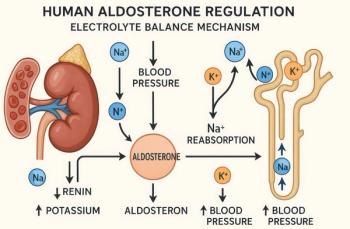
The Growing Need for Combination Rx in Hypertension
The era of controlling blood pressure with monotherapy (ie, with only a single antihypertensive) may well be a thing of the past. A recent American Society of Hypertension position paper on combination therapy in hypertension summarized the following pertinent observations in this regard.
The era of controlling blood pressure with monotherapy (ie, with only a single antihypertensive) may well be a thing of the past. A recent American Society of Hypertension position paper on combination therapy in hypertension summarized the following pertinent observations in this regard.1
A meta-analysis of 354 randomized, double blind trials demonstrated that monotherapy provided an average 9.1 and 5.5 mm/hg reduction in systolic and diastolic pressures, respectively.2 For those many contemporary patients who present with pressures at or above 180/105 mm/hg, this simply won’t cut it. In the Hypertension Trial “biggies”1 (ALLHAT, HOT, and LIFE), monotherapy achieved goal BP in only 26% of enrollees in ALLHAT and in 33% of enrollees in HOT. Of those studied in LIFE, 90% required at least 2 agents to reach target BP.
So what antihypertensives go well with others when we prescribe combinations?
Gradman and colleagues1 chose potential 2-drug combinations that have been proven to reduce cardiovascular end points. Let’s select some of their recommendations for further commentary.
1. A renin-angiotensin-aldosterone system inhibitor (RAAS-I) and a calcium channel blocker (CCB): This combination (for example, lisinopril, an ACEI, with amlodipine) provides a fully additive blood pressure reduction.
The ACCOMPLISH Trial3 compared an ACEI plus a diuretic with the same ACEI (benazepril) plus a CCB. Despite comparable blood pressure reductions in both treatment limbs, the combined end points of cardiovascular death, heart attack, or stroke were reduced 20% more by the ACEI plus CCB. ARB and CCB combinations are considered equivalent.
2. In contrast, a CCB plus a diuretic only provides partially additive effects. As a result, this specific combination is classified as only “acceptable.”
3. Likewise, although beta-blockers reduce cardiovascular end points, they are less effective than diuretics, ACEIs, ARBS, and CCBs in doing so. Beta-blockers and a diuretic are an acceptable combination, accompanied by heavy caveats. Glucose intolerance, frank diabetes, fatigue, and sexual dysfunction may accompany this combination.
4. Combining a RAAS-I and a beta-blocker produces little synergistic antihypertensive effects. This is a “less effective” combination.
5. In a previous article, I discussed - - and dismissed -- the combination of an ACEI and ARB for blood pressure control.4 Additional reductions in blood pressure were minimal and the risk of hyperkalemia was added.
The Gradman article discusses more efficacious and inefficacious combinations.1 Since target blood pressures are necessitating multiple drugs, this position paper is a great place to start reading.
References:
1. Gradman AH, Basile J, Carter BL, Bakris GL, (on behalf of the American Society of Hypertension Writing Group). Combination Therapy in Hypertension. J Clin Hypertension. 2011;13:146-154.
2. Law MR., Wald NJ, Norris JK, et al. Value of low dose combination treatment with blood pressure lowering drugs: analysis of 354 randomized trials. BMJ. 2003; 326:1427-1435.
3. Jamerson K, Weber MA, Bakris GL, et al for the ACCOMPLISH Trial Investigators. Benazepril plus amlodipine or hydrochlorothiazide for hypertension in high-risk patients. N Engl J Med.2008;359:2417-2428.
4. Rutecki GW. What’s new in hypertension? A contemporary primer.
Newsletter
Enhance your clinical practice with the Patient Care newsletter, offering the latest evidence-based guidelines, diagnostic insights, and treatment strategies for primary care physicians.

































































































































